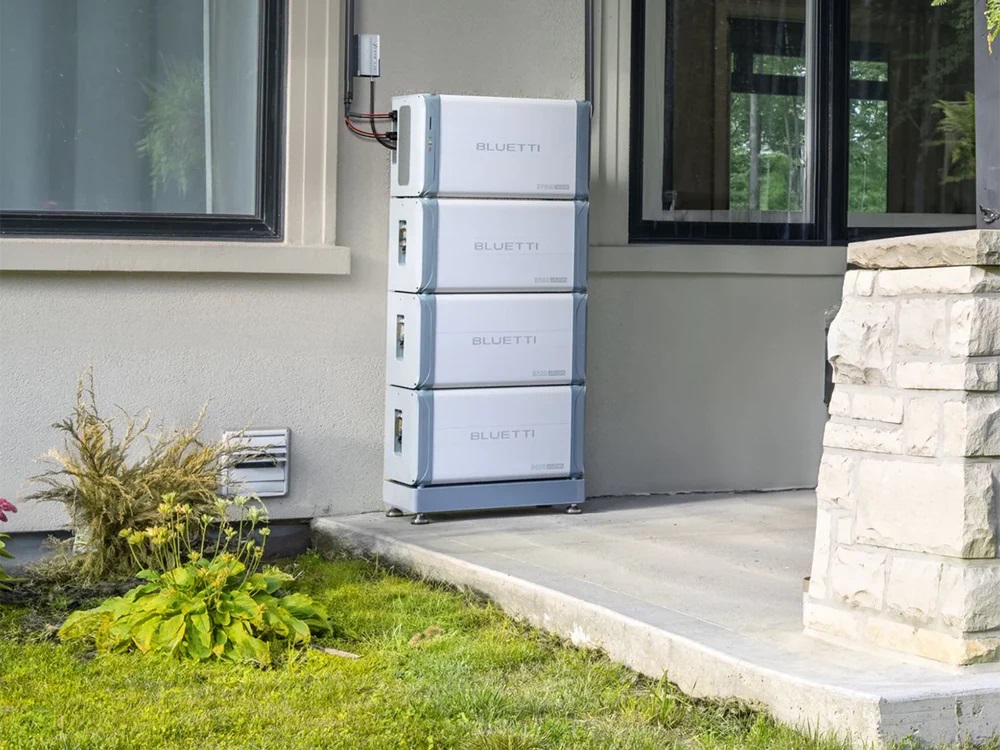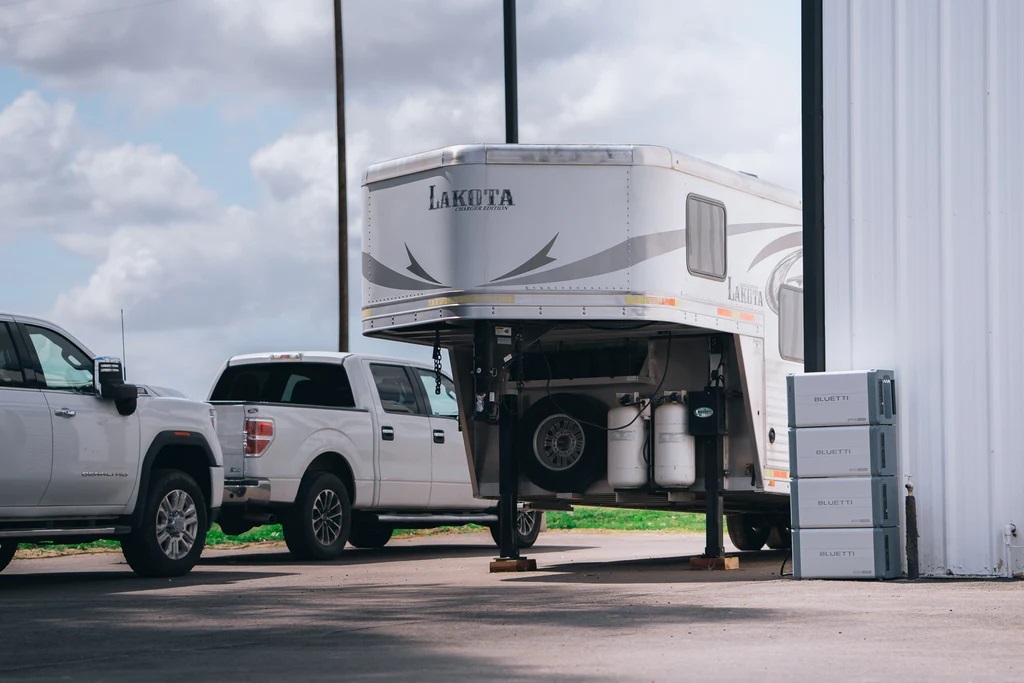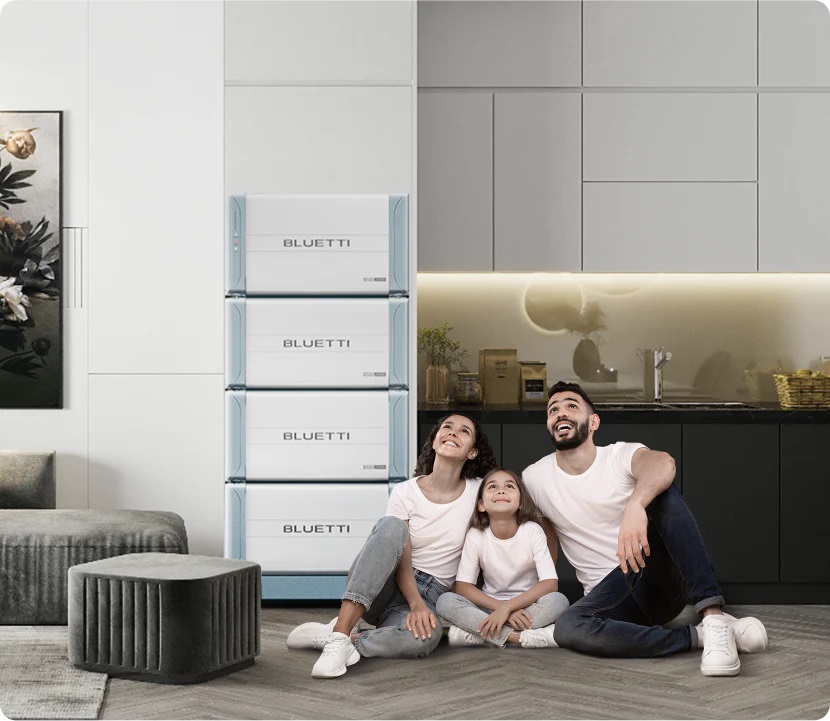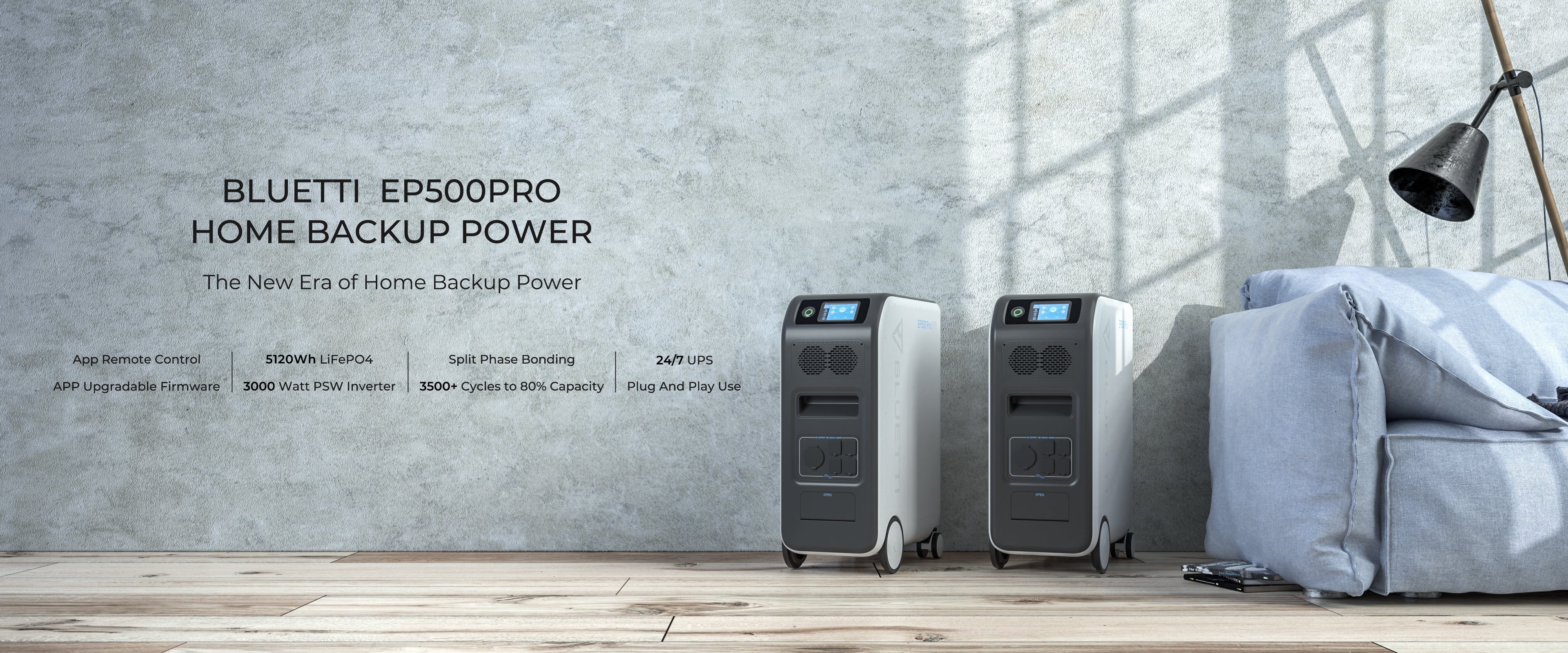Battery Vs. Generator
Battery Backup vs. Generator: Which Emergency Power Solution is Right for You?

Power outages are the inevitable scenarios of life that rough weather, maintenance, technical failures, and more can cause. Whatever the reason, you may never be fully ready for one. But you can mitigate the challenges with energy power solutions like UPS battery backup or generators. These are both popular emergency power solutions with advantages and disadvantages.
As a homeowner who needs a reliable power supply, you should explore their characteristics before selecting one. That's why, to assist you better, here is everything about battery backup systems and generators, their pros, cons, factors to consider, and more.
WHAT IS A BATTERY BACKUP SYSTEM?
As the name indicates, battery backup systems store energy and provide it to run most household or commercial appliances. They don't generate electricity but recharge it with AC units, solar energy, or other power sources.

HOW DOES IT WORK?
The working of the battery backup system depends on the type of product. Here's an overall idea of how it works: - The mains power, the power grid, or solar energy solution recharges the battery backup system's battery.
- According to the setup, the battery backup system powers the appliances and lighting solutions when the traditional power source is out.
- Also, it may have direct output ports for powering the devices.
It comprises a battery, an inverter, and a charge controller. The battery stores energy from the power source, and the inverter converts the stored DC electricity to AC, which is needed for running household appliances. The charge controller regulates the electricity between the inverter and the battery.
The home battery backup system, or UPS battery backup, has become popular for homes due to its large energy storage capacity, flexible pairings, modular designs, and straightforward operations. For example, the BLUETTI home battery backup range of products offer exceptional power solutions for small and large houses, outdoor needs, and commercial spaces.
ADVANTAGES OF BATTERY BACKUP SYSTEMS
Here are some amazing advantages of battery backup systems:
- Instant power anytime: The home battery systems don't require any setup or manual operation when the power is out. Connecting it with a transfer switch to integrate with the home wiring system will automatically power the home when the power is out. Also, it has stored energy for powering any appliance.
- Expandable: According to your home requirements, family members, types of appliances, etc., you can choose the power output and number of batteries accordingly.
- Environmentally friendly: One of the biggest advantages of the home battery system is that it stores energy from grid or solar solutions. They help you harness this energy without causing any emissions and sounds. This process has a lower carbon footprint, making your home more sustainable.
- Lower maintenance and running costs: It doesn't require regular refills. Also, they undergo less maintenance over the years, which is budget friendly.
LIMITATIONS OF BATTERY BACKUP SYSTEMS
Here are some limitations of battery backup systems:
- Runtime can vary: A battery backup system can only power if it has stored energy in the battery. So, the battery may be exhausted if the outage is longer than its potential. To deal with this, you should go for a battery with great capacity to improve its runtime.
- You need to assess your power needs: As a homeowner, you may have light and heavy-duty appliances. Evaluating the power needs of appliances, running time, and family members, you should go for the most compatible one. If you have a low-output battery system insufficient for your needs, it may not power all the appliances.
- High upfront costs: The upfront cost of setting up a top-line home battery system can be high. However, this is offset over the years by low bills and access to power 24/7.
WHAT IS A GENERATOR?
A generator is a robust machine that converts mechanical energy to electricity. Various types of generators use fuels like propane, diesel, natural gas, etc., to rotate the turbines which produce electricity.
How does it work?
To be more precise, here is a simple working of the generator: - You must fill the fuel tank with compatible fuel.
- The internal combustion will start the engine.
- The engine will turn the shaft of the generator.
- This rotation will spin a coil of wire in a magnetic field.
- This process produces electricity, which is used to run household appliances.
Pros of Generators
- High load capacity: The various sizes and types of generators can power all appliances of home and commercial spaces. It includes all heavy-duty or low-duty machines.
- Better runtime: The generator will produce electricity if it has fuel. With an ample supply of fuel this means you can harness electricity for a long time.
- Automatic operation: They automatically switch on when the power is out. (So do batteries if properly connected to do so.)
- Lower upfront costs: The upfront costs of the generators are lower than those of home battery systems.
Cons of Generators
- Lots of emissions and noise: The generators use various types of fuels, which may cause emissions that are not healthy for the environment. Also, they are noisy, which makes it disturbing.
- Regular maintenance and refilling: They require regular inspections, including oil changes, filter replacements, etc. Also, you must refill fuel to keep it running.
- Higher maintenance costs: The upfront cost may be low, but you must invest in maintenance and fuel.
MAKING THE RIGHT CHOICE BETWEEN BATTERY BACKUP AND GENERATOR
Here are some considerations which will help you make the smartest purchase:
Factors for Decision-making
- Power requirements: Generators can be a good choice if you have very high energy needs or have a commercial space. However, if you have light to heavy-duty appliances at home or in a commercial space, you can choose a home battery backup with high power output.
- The runtime needs: The power outages are generally short except in some special scenarios. Therefore, a battery system with good backups serves the needs. But if your area experiences long outages, generators can be good.
- Budget: Generators can be a better choice if you have up-front budget constraints. But remember they have high running costs. In comparison, battery systems may have high upfront costs, but this is offset over time by lower electricity bills and negligible maintenance.
- Portability: In this case, a backup battery system is the clear winner. They are very portable and perfect for both home & outdoor needs.
- Noise levels: The home battery backup systems have negligible sounds compared to generators with high noise levels.
- Installation: The installation of a home battery system is quite effortless as it can be mounted on walls and placed on any surface. However, generators may require outside installation, which may take time.
- Maintenance costs: The battery system is the obvious conqueror in this section. They have very little maintenance and running costs while generators require regular inspections and fuel refills.
Scenarios and Recommendations
Here are some recommendations for various scenarios: - Residential use: If you experience short outages, home battery systems can be a powerful and reliable energy source. It's environment and budget-friendly, and you can scale its battery according to your needs.
- Small business: You can use a home battery system with additional batteries for companies that rely on electricity. However, if you experience long outages in your area, generators can be great, too.
- Outdoor activities: For outdoor activities like camping, RV, events, parties, etc., portable battery backup systems are amazing. They have output ports to directly power all the devices.
BLUETTI UPS BATTERY BACKUP - POWER FOR YOUR HOME AND BUSINESS
After evaluating all the factors of the power systems, the battery backup system, with its capability, flexibility, reliability, and modular design, is often the better choice. The range of energy solutions BLUETTI provides is the one-stop solution for all your power needs.
It has all the solutions perfect for powering light to heavy appliances, outdoor activities, and commercial spaces. You can power them from the grid or solar energy solutions.
One such amazing solution is the BLUETTI EP900 + B500 Home Energy Storage System with an incredible 9,000W power output, which can power all 120V/240V devices. And you can scale its storage capacity from 9,920Wh to19,840Wh.

The EP900 features a modular design that can be installed inside and outside as it is IP65 water-resistant. With a premium LiFePO4 battery, 10-year warranty, BLUETTI App via Wi-Fi or Bluetooth control, etc., make it an excellent choice for residential energy storage and backup power.
You can also sell extra electricity back to the grid, which makes it even more budget friendly. Moreover, it can be paired with AC units and new and existing solar energy solutions.
Another amazing choice in this range is the BLUETTI EP500Pro Portable Backup Power Station. The BLUETTI EP500Pro ships with a ground-breaking 5100Wh LiFePO4 battery pack and a 3000W rated pure sine wave AC inverter.

This class-leading power station brings you the power to run your entire party, family camping trip, cabin workshops, or even your whole house for a day or two in the event of an unexpected outage. Up to 15 outlet sources allow you to power anything from laptops and air conditioners to your electric vehicles without breaking a sweat.
FINAL THOUGHTS
Generators and battery backup systems have their unique pros and cons. However, their main goal is to provide an uninterrupted supply of power. The choice depends on environmental and noise concerns, budget, and power needs. So, the tip is first to assess your present and future electricity needs. Consider factors like appliance power needs, running time, outages in your areas, portability, etc. After that, and after considering all the factors discussed in the article, you can make a decision that works best for you.
|



